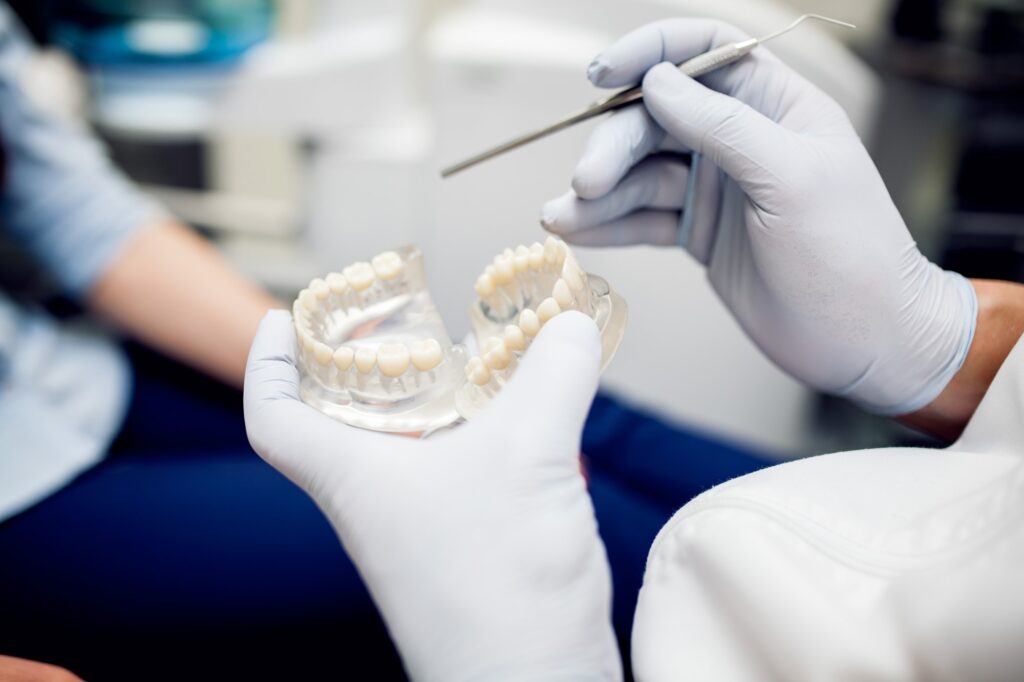A dental crown is a tooth-shaped cap that is placed over a damaged or decayed tooth to restore its shape, size, and strength. It is typically made from materials like porcelain, ceramic, or metal alloys, and it’s custom-made to fit your tooth precisely.
Why is a Crown Needed?
A dental crown is needed when a tooth is severely damaged or decayed and cannot be restored with a filling. A crown can also be used to protect a tooth after a root canal or to cover a dental implant.
Types of Crowns
There are several types of dental crowns available, including:
- Porcelain Crowns: These crowns are made from porcelain or ceramic and are often used for front teeth because they can be matched to the color of your natural teeth.
- Metal Crowns: These crowns are made from metal alloys and are typically used for back teeth because they’re durable and can withstand chewing and grinding.
- Porcelain-fused-to-metal (PFM) Crowns: These crowns are made from a combination of porcelain and metal and offer the benefits of both materials.
- Zirconia Crowns: These crowns are made from a strong, durable material that’s similar in color to your natural teeth.
What Happens During a Dental Crown Procedure?
The dental crown procedure typically involves the following steps:
- Numbing the area around the tooth with a local anesthetic
- Removing any decay or damage from the tooth
- Shaping the tooth to prepare it for the crown
- Taking impressions of the tooth to create a custom-made crown
- Placing a temporary crown over the tooth while the permanent crown is being made
- Removing the temporary crown and cementing the permanent crown in place
What are the Benefits of Dental Crowns?
Dental crowns offer several benefits, including:
- Restoring the function of a damaged or decayed tooth
- Protecting a tooth after a root canal or dental implant
- Improving the appearance of a discolored or misshapen tooth
- Preventing further damage or decay to the tooth
Care for Dental Crowns
To ensure the longevity of your dental crown, it’s important to practice good oral hygiene, including:
- Brushing your teeth twice a day with a fluoride toothpaste
- Flossing daily to remove plaque and bacteria from between your teeth
- Avoiding hard or sticky foods that could damage your crown
- Visiting your dentist regularly for cleanings and checkups
Conclusion
Dental crowns are a common and effective treatment option for restoring damaged or decayed teeth. With proper care and maintenance, a dental crown can last for many years and help protect your oral health. If you think you may need a dental crown, talk to your dentist to learn more about your options and what to expect during the procedure.

